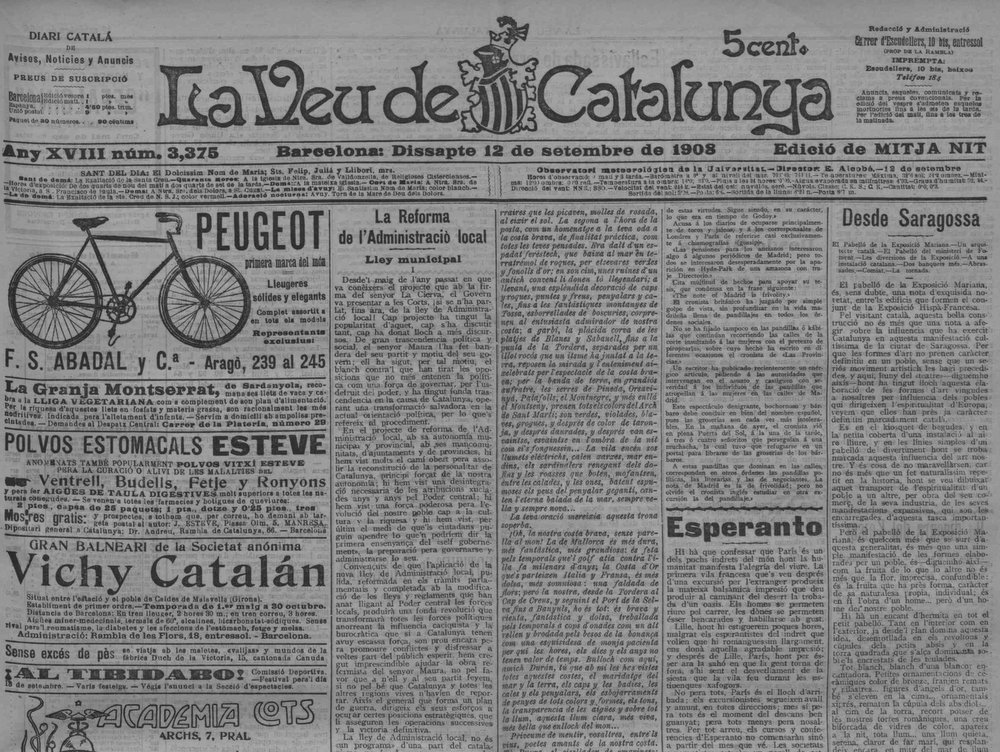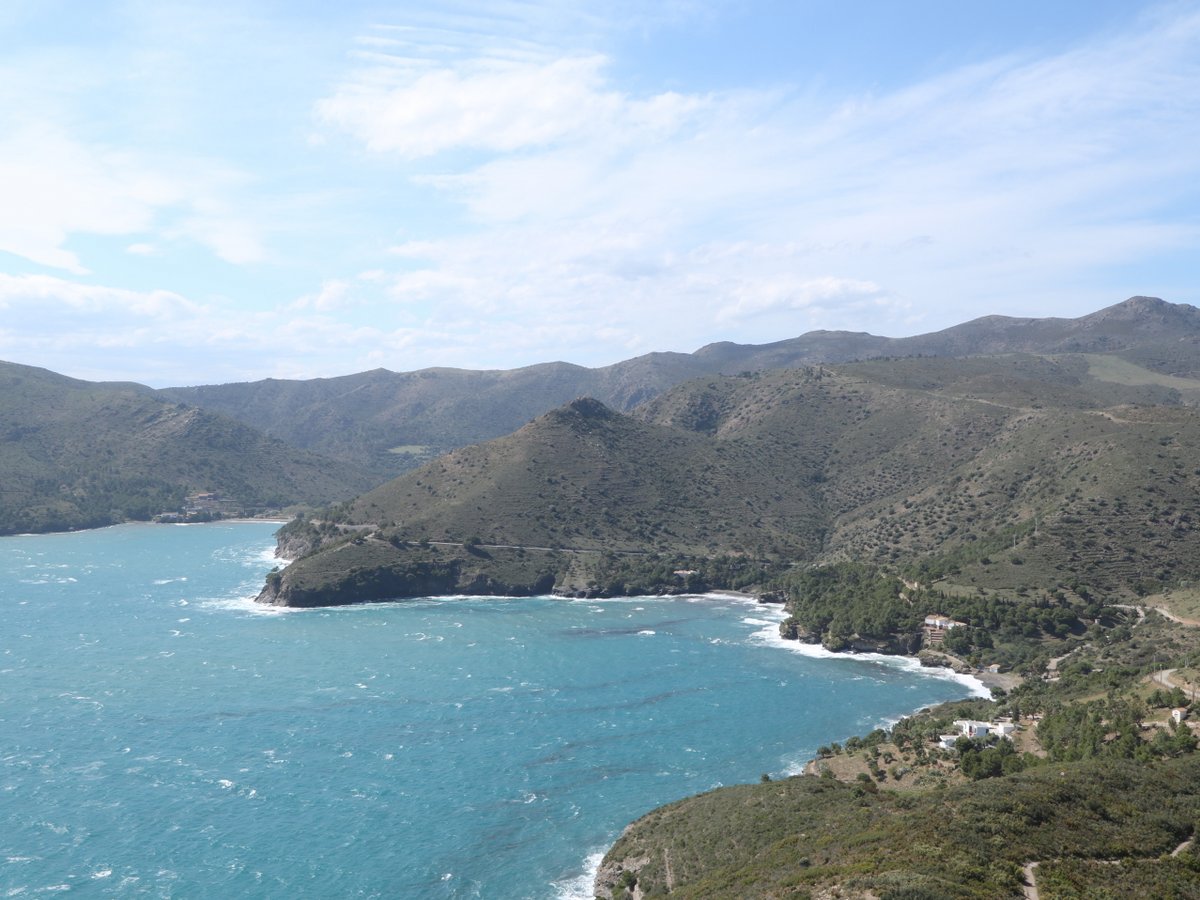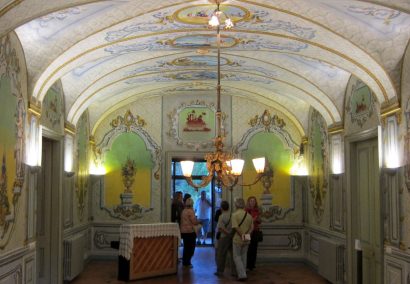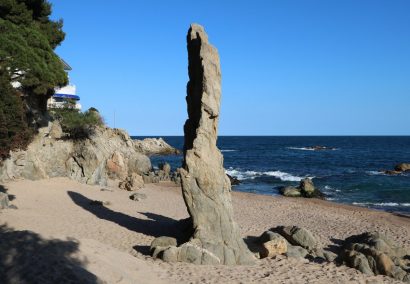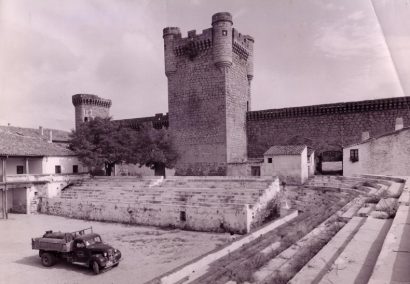The term “Costa Brava” was first coined by the poet and publicist Ferran Agulló i Vidal on September 12, 1908, in the newspaper La Veu de Catalunya.
The journalist was not offering a new name for the popular tourist spot, since the Costa Brava wasn’t a major tourist destination just yet — he was only writing about the coasts of Mallorca and the French Riviera, comparing them to his home coast and using the adjective brava (“brave, courageous, wild” in Spanish and Catalan) a couple of times. The obvious conclusion that the brave coast was more dear to him than all the others followed.
It was only years later, in the 1920s, that the coastal municipalities with growing tourist resorts would begin thinking about a catchy, succinct name that described the rocky wooded coast best. The Costa Brava had its fair share of opponents: Catalunya Grega (“Greek Catalonia”), Costa del Corall (“The Coral Coast”), Costes de Llevant (“The Llevant Coasts”), Marina de l’Empordà (“The Marina of Empordà”), Costa Empordanesa (“The Ampurdan Coast”) and even the absolute opposite Costa Serena (“The Serene Coast”). Among people proposing potential names were persons no less famous and influential than Ferran Agulló, such as the writer Joaquim Ruyra i Oms, the historian Josep Pella i Forgas or the artist Joan Llaverias i Labró.
As we now know, only one nickname has stood the test of time. In hindsight, it is easy to see that other versions never had a chance. The Costa Brava is short and consists of only two words that are equal in length and lack any apostrophes or special symbols. Anyone with no knowledge of Spanish or Catalan is likely to pronounce the name correctly with no accent. The name lacks boring historic references, geographical ties nor forced poeticism.
Ferran Agulló and his op-ed have inadvertently come up with one of the greatest tourist brands in history.
